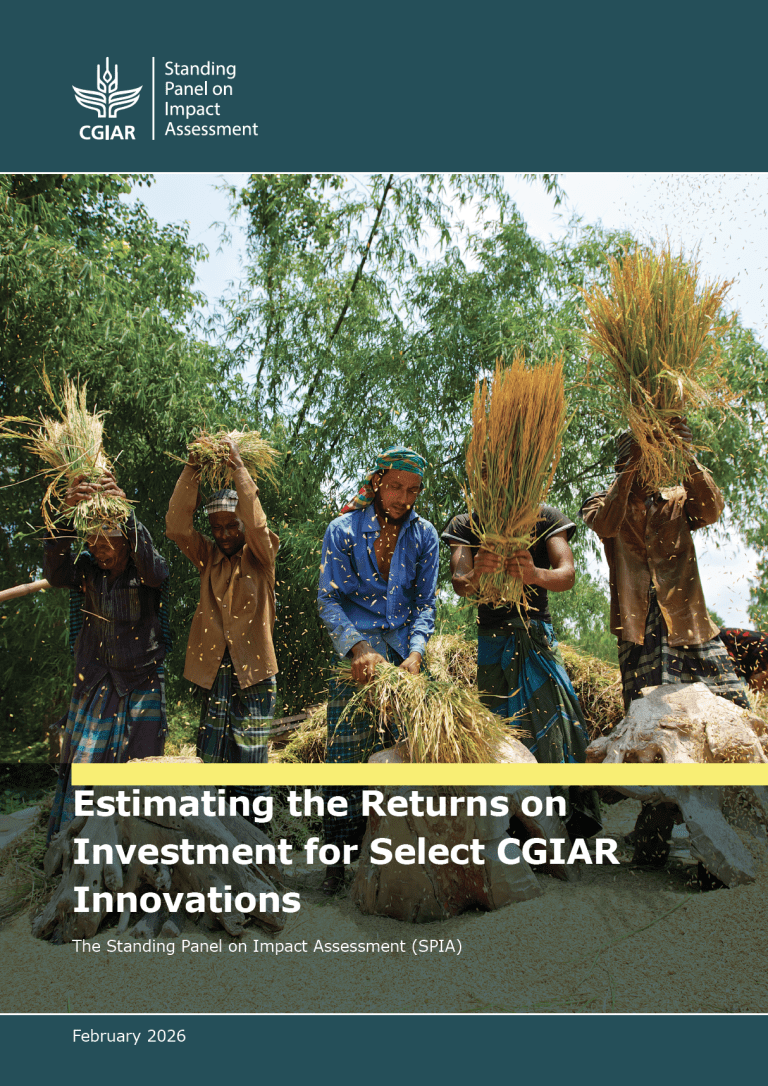Vietnam has undergone a structural transformation of its economy in the past few decades, with agriculture’s share of GDP falling from around 40% in 1990 to 16.3% in 2016. This pattern is consistent with Vietnam’s rise as a middle-income country, with the country’s GDP per capita increasing by a factor of 3.6 in the twenty years between 2002 and 2021. In tandem with this remarkable economic development, agricultural productivity has also risen, and a series of economic liberalization reforms have resulted in Vietnam becoming a major exporter of rice, coffee, aquaculture products (e.g. pangasius, shrimp), and starch (processed from cassava) among other products. Agriculture remains an important backbone of the Vietnamese economy with millions of people employed in the sector, and Vietnam has remained a high-priority country for CGIAR researchers throughout this period.
On 6th June 2022, SPIA led a consultation meeting on data collection on CGIAR-related innovations in Hanoi, co-hosted by the Vietnam’s Institute of Policy and Strategy for Agriculture and Rural Development (IPSARD) and IRRI. We were warmly welcomed by our colleagues at CGIAR centers, as well as representatives of the General Statistics Office (GSO), the Ministry of Agriculture and Rural Development (MARD), and different research institutions in Vietnam. Officials from MARD highlighted CGIAR contributions to a range of different fields including rice, cassava, potato, forestry, livestock, aquaculture, food systems, and environment management. We were very fortunate to also have the former Minister of Agriculture and Rural Development, Dr Cao Duc Phat (2004 – 2016), and his Vice-Minister Dr Bui Ba Bong who spoke of the many times they received advice on specific agricultural policy issues from CGIAR researchers during their tenure.

Dr Tran Cong Thang, IPSARD Director, outlined the vision for Vietnam’s rural development over the next decade. The government plans to continue the “renovation” of its agriculture into a modern, sustainable, and high value-added sector while securing past achievements on food security and livelihoods. Thus, the ongoing country work of SPIA in Vietnam could help understanding of the pathways of successful innovations from the research station to farmers’ fields and give insights to the scaling of the future innovations developed by CGIAR’s scientists.

SPIA presented some preliminary results from the stock-taking exercise to introduce some agricultural innovations that could be at scale. We received valuable feedback from our partners at IRRI, Bioversity-CIAT, WorldFish, ILRI and CIP on identifying the key innovations, the relevant government agencies / institutes that we should be liaising with, and some remarks on the dynamic environment over the last 20 years in Vietnam. In line with this, the consultation meeting was a unique opportunity for SPIA team to learn about the rich data landscape managed by GSO and MARD, and ways in which data are currently used to inform policymakers. Despite the strong culture of routine data collection being well-institutionalized in the country, it was widely recognized that there were some important data gaps, particularly on adoption of specific innovations. For all of these reasons, it is clear there are highly favorable conditions for SPIA to build on for our next steps to collect nationally-representative data on dissemination and adoption of innovations.
On day 2, June 7th, we were able to get into the weeds with a smaller group, presenting some of SPIA’s ongoing studies on identifying natural resource management innovations, and scoping the use of remote sensing. Participants from MARD, GSO, the Vietnam National Space Center (VNSC) and CGIAR centers all provided important inputs to help design rigorous data collection on the dissemination and adoption of key innovations. Having the dedicated time of all these professionals to brainstorm, discuss different options and get frank feedback on our plans was really valuable – a big thanks to all the participants for such a stimulating workshop.



